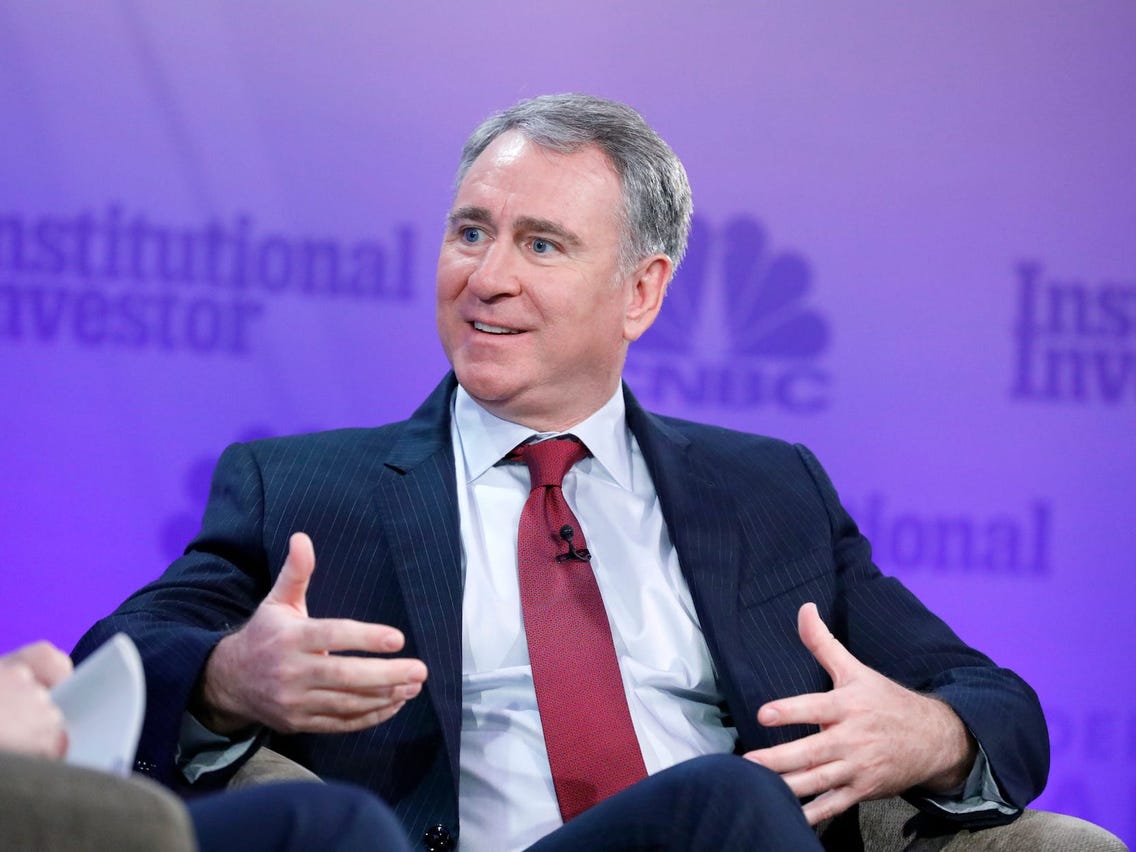Hedge fund billionaire Ken Griffin has stripped himself of a huge $1.15 billion stake in Citadel Securities, his trading firm, having sold to leading venture capitalists Sequoia and Fred Ehrsam’s digital assets group Paradigm.
Griffin owns about 85 per cent of Citadel Securities, valuing his stake in the business at some $18 billion. In 2021, he bought a copy of the US Constitution for $43.2 million, beating a group of over 17,000 retail traders at auction. He also paid 95 million Pounds for a London house near Buckingham Palace.
Join our WhatsApp Channel
Griffin was reported to be planning to spend the money on a more aggressive international expansion. It’s Chief Executive Peng Zhao was quoted by Financial Times as saying that the company plans to move into ‘’new markets and asset classes.’’
This expansion scheme includes moving into crypto, according to Matt Huang who co-founded Paradigm with Coinbase co-founder Fred Ehrsam.
The move paves the way for an initial public offering of one of the world’s biggest market makers.
The rare foray into the financial services sector by Sequoia, a Silicon Valley group best known for its early bets on tech companies like Apple and Google, now puts the value of Citadel Securities as a trading company at $22 billion and represents first outside investment in the company.
Citadel Securities was founded in 2001 as a separate entity to Griffin’s $43billion hedge fund Citadel and has become a visible player in global markets. It serves as intermediary between buyers and sellers of stocks, bonds and derivatives and has become the biggest market maker for US stocks with more than 27 percent of all US equities.
Griffin who has been very much averse to cryptocurrencies in the past had described it as ‘’a Jihadist call that we don’t believe in the dollar.’’
Prime Business Africa had reported that the International Monetary Fund (IMF) disclosed that the crypto currencies’ high volatility and valuation would soon pose risks to financial stability in countries, including Nigeria.
The IMF, in a blogpost titled, ‘Crypto Prices Move More in Sync With Stocks, Posing New Risks’, on Tuesday, explained that crypto assets were no longer on the sidelines of the financial system, adding that there was an increasing and sizable co-movement between crypto and equity markets that could cause shock, destabilising financial markets.
It said the stronger association between crypto and equities was apparent in emerging market economies, most of which are leading in crypto-asset adoption.
‘‘The increased and sizable co-movement and spillovers between crypto and equity markets indicate a growing interconnectedness between the two asset classes that permits the transmission of shocks that can destabilise financial markets,’’ the IMF said.
“Our analysis suggests that crypto assets are no longer on the fringe of the financial system. Given their relatively high volatility and valuations, their increased co-movement could soon pose risks to financial stability especially in countries with widespread crypto adoption.”
It is not yet clear if, in its international expansion plans, Citadel Securities has any plans for Africa.
Citadel Securities remains the biggest market maker for ordinary American traders, accounting for about 37 per cent of all retail trading, and paying brokerages for the right to handle their orders.
Of Nigeria’s 195, 000-kilometre road network, only about 60,000 kilometres have been paved in its long history of road repairs and construction, leaving about 70 percent unpaved. This means that, despite successive yearly allocation to road construction and maintenance, Nigeria still faces inadequate road infrastructure.
In 2021, the Federal Government allocated nearly half a trillion naira (N460 billion) to construct and rehabilitate roads its six geopolitical zones.
For the 2022 budget, the House of Representatives had asked to increase budget for road rehabilitation to N500 billion, up from the N240 billion allocated, with what the government said were N640 billion outstanding certificates to contractors.
Chairman of the House of Representatives Committee on Works , Abubakar Kabir, had described allocation to the Federal Ministry of Works and Housing as inadequate. N450.02 billion was originally proposed as capital expenditure for the ministry, N15.05 billion for personnel costs, and N16.5 billion for overheads. N240 billion was specifically mapped for road infrastructure














Follow Us